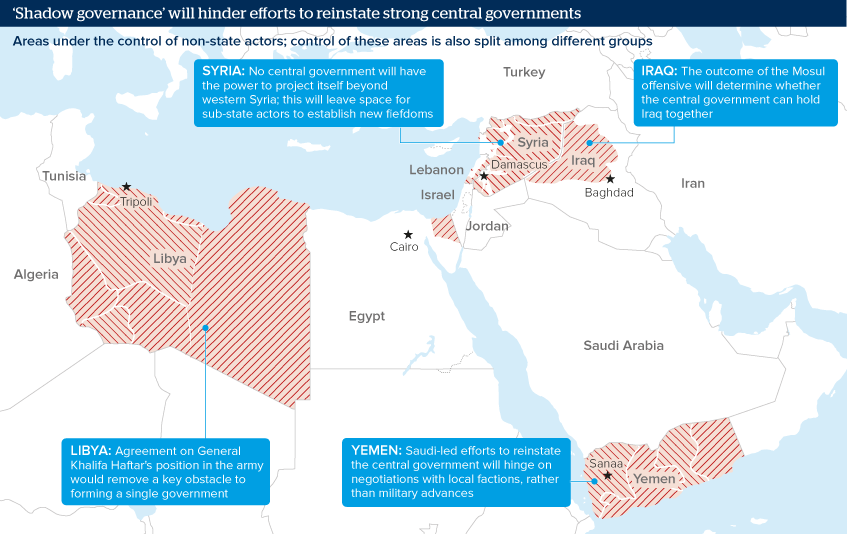'Shadow governance' fragments Middle East states
Regional conflicts have given rise to non-state actors that provide alternate types of governance

Source: Oxford Analytica
Outlook
Central governments in the region have retrenched in the wake of the 2011 uprisings, allowing space for non-state actors to control portions of state territory. Some of these actors have developed governance structures, delivering varying levels of justice, law and order, and economic opportunities outside the services provided by the country's internationally recognised government -- providing in effect 'shadow governance'.
In some of these areas, shadow governance may be so entrenched and the central government so weak that it will be difficult for the latter to regain control of those territories through force in the medium term. With political settlements looking unlikely, shadow governance along sectarian or tribal lines is likely to persist into the next decade.
Impacts
- The fragmentation of governance in Libya among several groups will undermine international efforts to install a single government.
- In Syria and Iraq, efforts to form new sub-state entities will increase the risk of sectarian or ethnic cleansing.
- Conflict has significantly weakened central government in Syria and Yemen, making a loose federal arrangement inevitable.
- By contrast, some capitals, such as Cairo and Manama, aim to enhance central state control through repressive measures.